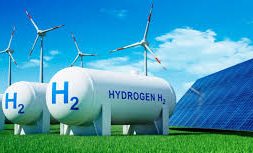
NLC India Invests Rs 50,000 Crore In Renewable Energy – EQ
In Short : NLC India Ltd (NLCIL) has announced plans to invest ₹50,000 crore in expanding its renewable energy capacity from 1.43 GW to 10.11 GW by 2030. This ambitious project is part of India’s broader commitment to achieving net-zero emissions by 2070. NLCIL’s subsidiary, NLC India Green Energy Limited (NIGEL), will lead the initiative, which focuses on boosting the share of renewable energy to 77% by 2047. This expansion also aligns with India’s climate commitments made during COP26.
In Detail : Lignite-to-power producer NLC India Ltd (NLCIL) will invest around Rs 50,000 crore to ramp up its renewable energy capacity from 1.43 GW to 10.11 GW.
NLC India Green Energy Limited (NIGEL), a wholly-owned subsidiary of NLCIL, is established with a special focus on renewable energy generation, an official statement said.
“NLCIL aims to achieve a renewable energy (RE) portfolio mix of 50 percent of its total planned capacity, increasing its RE capacity from 1.43 GW to 10.11 GW.
“The above plan entails an investment of Rs 50,000 crore (approx) in a renewable portfolio, which will support India’s RE target and contribute to the broader aim of achieving ‘net zero’ emissions by 2070,” the statement said.
India is committed to a low-carbon emission path while pursuing its development goals, as pledged at COP 26.
NIGEL aims to expand its portfolio by participating in competitive bidding and exploring emerging opportunities in the green energy sector. Currently, 2 GW of renewable energy assets are under implementation.
This expansion will reduce the country’s dependence on conventional energy sources, diversify energy generation, and lower coal imports.
Additionally, it will help ensure round-the-clock power supply across the country.
NLCIL envisages increasing the share of renewable energy from 50 percent by 2030 to 77 percent by 2047 in its energy generation portfolio, enabling the company to achieve net zero by 2070.
With a much changed energy landscape beyond 2030, NLCIL foresees no new thermal power capacity addition.










